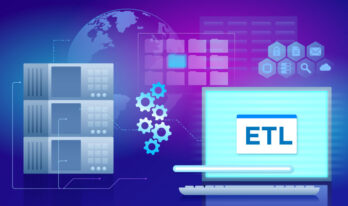In the information age, data can be assumed to be a trump card for businesses. However, dealing with a large volume of these elements can be extremely complex. That's where data modelling comes in.
Data modelling tools allow you to demonstrate how the data structures that will support business processes will be built, how the data will be organized and what relationships we intend to establish between them.
Data modelling is an important and essential step in any software development or maintenance project.
There are three types of data models namely:
Conceptual: This part of the routine is characterized by the creation of the first drawings of the tables that will compose the entire database system.
To carry out this design, the UML language is used, graphically describing the actions that must be performed and the actors involved in each of them through the use-case diagrams.
Logical: Aggregates implementation details and takes into account the rules and some standardized resource limitations. Here it is possible to define attributes that will be the key to the structure.
Physical: Demonstrates the data physically and takes into account all the rules and limitations of the database.
Top 6 Open Source Data Modeling Tools
DB Designer was originally built to support MySQL, but it also supports reverse engineering and synchronization to other DBMSs such as Oracle, SQL Server, SQLite and others that allow access via ODBC.
DB Designer is a free tool for data modelling that works with the logical model.
Key Features:
- This tool enables reverse engineering.
- User-friendly UI for modelling.
- Customize your project view using view modes.
- Provides team collaboration & sharing of projects.
- It has advanced export options.
An open-source data modelling toolkit used by thousands of enterprise architects, Archi was initially funded by Jisc as part of a national project.
Archi enables you to visualize your data structures to create ArchiMate models and modelling sketches.
Key Features:
- Hints view for helping you to understand ArchiMate.
- Archi is fully cross-platform.
- Alter the ArchiMate Viewpoint at any time with dynamic viewpoints.
- Quickly design & create soft models with a sketch view.
- Allows you to create & edit your own canvasses.
Also Read: Data Warehouse vs. Data Mart: What’s the Difference?
ArgoUML is one of the most popular open-source UML modelling tools. Coded in Java, it is published under EPL (Eclipse Public License).
Its interface is rather pleasant, easy to access and allows quick handling.
Key Features:
- Supports code generation and reverse engineering.
- ArgoUML is multilingual.
- Platform independent – Java 1.5+ and C++.
- Closely follows the UML standard.
- Advanced diagram editing and zoom.
- Export diagrams as PNG, PS, GIF, PGML, EPS & SVG.
Oracle SQL Developer Data Modeler is a free-to-use data modelling tool, rich in graphics and productivity. It streamlines various data modelling tasks, supporting developers while designing their architecture.
Key Features:
- Provides forward and reverse engineering capabilities.
- Supports collaborative development via integrated source code control.
- Can be used in both traditional & as well as in cloud environments.
- Users can create & edit relational, logical, physical, multi-dimensional, and data type models.
Database Deployment Manager is a free desktop-oriented, multi-platform data modelling tool that makes the life of a database developer easier by providing an easy way to create database structures and layout.
Key Features:
- Easy to create columns in a table.
- Create E-R diagrams between chosen tables.
- Database design validation.
- Unique visual query builder.
- Use object-oriented modelling to create multiple table templates.
With a light and pleasant interface designed for the PostgreSQL database system, PgModeler is an open-source data modelling tool for building database models that give comprehensive access to its source code.
Key Features:
- XML based files.
- Automatically generates columns & constraints.
- Restores previous work in case of failure.
- Develop SQL scripts to synchronize both model & database.
- Command-line interface to automate processes.
- Create models from existing databases.
Concluding Words
Data modelling is the first stage of a database project, with the main objective being the development of a model that has entities and relationships, thus being able to represent the specifications of the information.
Modelling serves to organize the way of thinking about data, demonstrating its meaning and practical application by representing the environment, documenting, providing validation processes and observing relationship processes.
Also Read: Data Modeling Patterns 101




